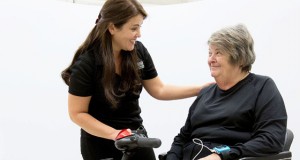Recent News

- Our People
Pharmaceutical sciences faculty awarded patents
Two members of The University of North Texas Health Science Center at Fort Worth’s College of Pharmacy faculty have made significant strides in their respective fields. Dr. Kyle Emmitte, an expert in medicinal chemistry, and Dr. Jin Liu, specializing in computational drug design, joined forces on ...
- Our People
HSC students highlight importance of physical therapy in D.C.
Prior to coming to The University of North Texas Health Science Center at Fort Worth, Do Kyung Yun advocated alongside community members in his Los Angeles neighborhood. As a community organizer, Yun, a second-year physical therapy student who is known to friends as “DK,” used to frequent meetin...
- Our People
Dr. Tracy Hicks reelected board member-at-large of the Fellows of the American Association of Nurse Practitioners
Tracy Hicks, DNP, MBA, APRN, FNP-BC, PMHNP-BC, CARN-AP, FIAAN, FAANP, associate professor at The University of North Texas Health Science Center at Fort Worth’s College of Nursing, was recently re-elected as board member-at-large of the Fellows of the American Association of Nurse Practitioners. ...
- Our People


Social media